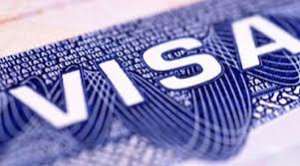
- Tell the truth
At some point in a visa application, you may be faced with the temptation to lie in your application. You may wish to conceal an adverse fact like a previous ground of inadmissibility, a previous refusal, the use of a previous name or date of birth in a previous application, etc. Notwithstanding how sound your reasons may be, it is always preferable to seek good advice before embarking on this road.
If you feel you cannot complete a visa form or submit a document without hiding some piece of information, or you really do not know how to answer or explain a key question on the form, you may speak to a lawyer. The lawyer may be able to show you how to be truthful in a way that doesn’t risk having your application refused.
Even if the lawyer tells you that your application will be refused because of your previous violation, would you not be better off with this enlightening information before perhaps wasting your time and money on an application that may lead nowhere? Whiles others may be fortunate to hide information, you may not be so lucky. If the concealed fact or information is discovered by the consular officer you may be ineligible to enter the country (either permanently or for a number of years).
You must therefore be forthright with all details in your application notwithstanding your fear that your application to be refused. To be sure that you are providing true and accurate information or document, always review all information or document supplied in your application. For documents received from third parties like bank statements, business and invitation documents, etc. especially from agents, you must always insist on knowing the origins of the document. You may not be allowed to put up the defence that you did not know the document was false because it was only given to you by another person.
- The information submitted must be consistent with the documents supplied
Ensure that your evidence is consistent with the statements you have made in your application. Consular officers generally decide applications in the light of information and or documents submitted by you. Consistency breeds trust, and your application is more likely to be believed if the information in your application is in harmony with your supporting documents. For example, if your invitation letter says that you will be staying for 14 days, this must be consistent with information on the number of days stated on your visa application form, the number of days shown on your hotel and or flight booking (if any), and in supporting documents or letters which make references to the days you will be staying.
If the information is inconsistent with the supporting documents this may lead the officer to raise doubts on your claimed intention. For example, the applicant says that he has not previously been married but his marriage certificate shows his status as divorced; the applicant says that he is visiting his uncle, but the so-called uncle refers to him in the invitation letter as a friend; the applicant says he is visiting the UK with his family and will be staying with a relative, but the document covering the accommodation facility from the UK relative shows it's only a one-bedroom apartment; the applicant says he is visiting for tourism purposes, but he is unable to name any known tourist destination in the country; the applicant says he is a businessman but his bank statement shows little or no movement of funds consistent with a functional business.
The list is endless. Any inconsistency, no matter how seemingly insignificant may cause the consular officer to doubt your intentions, and may ultimately lead them to refuse your application. Interestingly, many errors are clearly avoidable and could have been rectified had the applicant utilised little effort in reviewing their application.
To be continued…
Emmanuel Opoku Acheampong
Disclaimer: This article only provides general information and guidance on general immigration law. The specific facts that apply to your matter may make the outcome different than would be anticipated by you. The writer will not accept any liability for any claims or inconvenience as a result of the use of this information. The writer is an immigration law advisor and a practicing law attorney in Ghana. He advises on U.S., UK, and Schengen immigration law. He works part-time for Acheampong & Associates Ltd, an immigration law firm in Accra. He may be contacted on [email protected]




 We’ll protect state wealth from opaque deals – Prof Jane Naana
We’ll protect state wealth from opaque deals – Prof Jane Naana
 Mauritania president says running for second term in June polls
Mauritania president says running for second term in June polls
 I won't ever say I was a mere driver’s mate' — Prof. Opoku-Agyemang
I won't ever say I was a mere driver’s mate' — Prof. Opoku-Agyemang
 2024 polls: 'EC struggling to defend credibility'— Prof. Opoku-Agyemang
2024 polls: 'EC struggling to defend credibility'— Prof. Opoku-Agyemang
 Akufo-Addo gov't's 'greed, unbridled arrogance, unrestrained impunity, sheer dis...
Akufo-Addo gov't's 'greed, unbridled arrogance, unrestrained impunity, sheer dis...
 Election 2024: Ghana needs an urgent reset, a leadership that is inspiring – Ma...
Election 2024: Ghana needs an urgent reset, a leadership that is inspiring – Ma...
 Partner NDC to rollout a future of limitless prospects – Prof Jane Naana Opoku-A...
Partner NDC to rollout a future of limitless prospects – Prof Jane Naana Opoku-A...
 NPP will remain in gov’t till Jesus comes — Diana Asamoah
NPP will remain in gov’t till Jesus comes — Diana Asamoah
 Sunyani Technical University demands apology from former SRC president over sex-...
Sunyani Technical University demands apology from former SRC president over sex-...
 'Dumsor' was resolved by Mahama but ‘incompetent' Akufo-Addo has destroyed the g...
'Dumsor' was resolved by Mahama but ‘incompetent' Akufo-Addo has destroyed the g...
